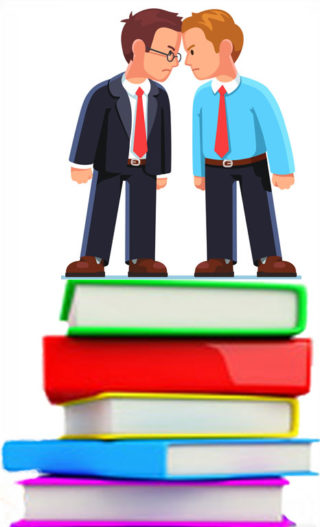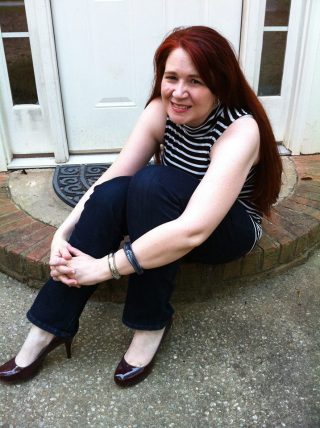Florence Osmund Author and Contributor When it dawned on me last year that I was making less money but spending more time promoting and marketing my books than I did three years earlier when I had fewer to offer, I decided to take a break from writing and focus on what I was doing wrong. Since my marketing strategy hadn’t changed during these years, I was pretty sure it was the industry that had changed around me, and I had to understand this in…
All you need to know about Beta Readers!
Charla White Beta Readers A Beta reader, also known as a pre-reader, is an essential component that all authors should consider utilizing. Beta readers are defined as non-professional. They are readers who enjoy reading and who want to help writers be successful. (In truth, we want to read the book first and watch the creative process in action and feel like we helped.) Beta readers will look over written materials for plot errors, grammar and spelling errors, issues with character development and suggestions to improve the book. Included in their services, they can also be fact checkers; however, if you need to designate one as a fact checker communicate that to the person. They are a wonderful resource that is gaining in popularity due to the ease of finding and communicating with folks who are truly interested in seeing a writer succeed. But why should anyone use beta readers? Beta readers don’t have to be nice to you, they do not have a close or personal relationship with you like family members, spouse or even good friends. They will give you honest feedback that you must evaluate and either take their suggestions seriously or not. Let’s be honest here, as…
What’s a Beta Reader and how do you find them?
Beta Readers A Beta reader, also known as a pre-reader, is an essential component that all authors should consider utilizing. Beta readers are defined as non-professional. They are readers who enjoy reading and who want to help writers be successful. (In truth, we want to read the book first and watch the creative process in action and feel like we helped.) Beta readers will look over written materials for plot errors, grammar and spelling errors, issues with character development and suggestions to improve the book. Included in their services, they can also be fact checkers; however, if you need to designate one as a fact checker communicate that to the person. They are a wonderful resource that is gaining in popularity due to the ease of finding and communicating with folks who are truly interested in seeing a writer succeed. But why should anyone use beta readers? Beta readers don’t have to be nice to you, they do not have a close or personal relationship with you like family members, spouse or even good friends. They will give you honest feedback that you must evaluate and either take their suggestions seriously or not. Let’s be honest here, as a writer…
Traditionally published authors are not your enemy!
Self- Publishing vs. Traditionally Published - let the war begin! Self-published authors are not competing with other self-published authors but ALL authors. Once a book is available for sale, it must be up to the standard that readers expect from all good books. You rarely get a second chance for a good first impression! Once you put out a book that lacks professionalism, readers will be less likely to try your next book. This can be a very difficult hurdle to get over. Traditionally published authors are not your enemy. Most traditionally published authors don’t have any advantages that you can’t achieve. Traditionally Published books are: Edited by the publisher Cover art is done by the publisher Some help with promotion is provided- most is expected from the author unless they have high sales. Lower royalty payments Self- Published books are: Editing is provided by the author Cover provided by the author Promotion done by the author Higher royalty payments. If a SP author pays for professional help, they will probably come out about equal in money made. Doing the work requires time and money but the author maintains complete control- something that is often very important. The self-publishing community…
Quality is important!
Self- Publishing Self-published authors are not competing with other self-published authors but ALL authors. Once a book is available for sale, it must be up to the standard that readers expect from all good books. You rarely get a second chance for a good first impression! Once you put out a book that lacks professionalism, readers will be less likely to try your next book. This can be a very difficult hurdle to get over. Traditionally published authors are not your enemy. Most traditionally published authors don’t have any advantages that you can’t achieve. Traditionally Published books are: Edited by the publisher Cover art is done by the publisher Some help with promotion is provided- most is expected from the author unless they have high sales. Lower royalty payments Self- Published books are: Editing is provided by the author Cover provided by the author Promotion done by the author Higher royalty payments. If a SP author pays for professional help, they will probably come out about equal in money made. Doing the work requires time and money but the author maintains complete control- something that is often very important. The self-publishing community is very generous in advice and with a…
Interview with Dawn Lamprecht – Editor, WordTherapy Editorial Services
We'd like to welcome Editor Dawn Lamprect to indieBRAG today to talk with us about her editing service. Dawn is owner and Editor of WordTherapy Editorial Services. While educated in writing and editing, she also spent many years as a Mental Health Therapist and Licensed Social Worker. Dawn enjoys using her analyzing skills while editing (analyzing the writing, not the writer!). Dawn makes it a priority to keep the writer’s voice, and her background has given her a knack for doing so. Dawn started writing and studying writing as a young child. Dawn went on to get a Bachelor of Arts Degree from the University of Nebraska at Lincoln (as Dawn DeLay). She had a major in English, a minor in Psychology, and also took several classes in Creative Writing and News Editorial Journalism (including editing). Dawn then went on to get a Master of Social Work Degree. After working in that field for a number of years, including writing in that field and helping others write reports, she is now back to her first loves of editing and writing. Dawn is a member of the Christian PEN: Proofreaders and Editors Network. In addition to editing, Dawn also: teaches writing and literature, tutors…
Copy-Editor- do we need one?
By Award Winning Author Elisabeth Marrion-B.R.A.G. Medallion Honoree You finished your latest masterpiece. Ready to press the publish button? No, wait, hold it there, just for a minute. Have you read and re-read? Did you do so on your computer, or did you print a copy? Printing out a copy is always a good idea, if you can do that. It really is easier to spot mistakes on a printed sheet. Have you been lucky, or brave enough, to have it beta read? Most of us have written more than one book. Do we, by now, have an inkling as to what will be best for our work to shine above the rest? Cost, as always, will be a factor. Proofreading is a must and can be costly. I, at one time, received some really bad advice on how to save on proofreading costs. A mistake I will not repeat. But do we need the extra expense of having the manuscript copy-edited? And bear in mind, that your copy-editor might suggest some changes. Or, worse still, suggest to delete certain sections altogether. This is your work, every word thought about, and the story carefully crafted. And now? A total stranger…
Most Shared Posts
- On the road with Apple Turnovers!
- Grab a Meat Pie and travel back in time!
- A closer Look
- Egyptian Jews- a Culinary Community
- What do you know about self-publishing?
- The Plague!
- Trucking Together!
- A conundrum!
- Memories of the Deli-
- Time Travel
- A Trip into Medieval England
- Ahh! Summer Reading & a Lovely Tomato Salad
- Time Travel
- A Memorial Day Special!
- Delicious Savory Onion Pie is paired with this month’s Foodie Lit historical novel, Infants in the Brush.
- “I TRIPLE-dog-dare ya!”
- Handfasting- a commitment by joining hands
- Attention Mainstream & Self-Published Authors!
- Have you ever wondered how snowflakes are made?
Most Discussed Posts
- On the road with Apple Turnovers!
- Grab a Meat Pie and travel back in time!
- A closer Look
- Egyptian Jews- a Culinary Community
- What do you know about self-publishing?
- The Plague!
- Trucking Together!
- A conundrum!
- Memories of the Deli-
- Time Travel
- A Trip into Medieval England
- Ahh! Summer Reading & a Lovely Tomato Salad
- Time Travel
- A Memorial Day Special!
- Delicious Savory Onion Pie is paired with this month’s Foodie Lit historical novel, Infants in the Brush.
- “I TRIPLE-dog-dare ya!”
- Handfasting- a commitment by joining hands
- Attention Mainstream & Self-Published Authors!
- Have you ever wondered how snowflakes are made?
Blog Categories
- Anne R. Allen
- Authors' Chat
- award winning books
- Bloggers
- Book Giveaway
- Book Marketing
- Book Spotlight
- Christmas
- Crime and Mystery
- Editing
- Editing by Ellie
- Food for Thought
- Foodie Lit
- From Fact to Fiction!
- genres
- Graphic Design
- Halloween
- In Praise of indieBRAG
- indieBRAG
- indieBRAG 2017 Cover Contest
- indieBRAG Kids
- indieBRAG News!
- Legal Tips from Helen Sedwick
- Marketing an indie Book
- Middle Grade Reader
- Novel Conversations with Helen Hollick
- Readers Thoughts!
- Romance
- Steena Holmes
- teen books
- Teen Week
- Thanksgiving
- The B.R.A.G.Medallion
- The Self-publishing World
- The World of Reading
- Words of Wisdom
- Writers, Readers & Self Publishing
- young adult






